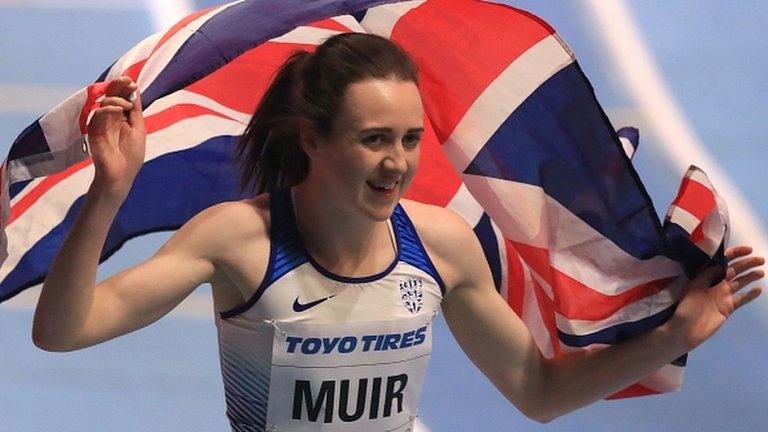Athletics: Gender tests study 'shows female testosterone advantage'
- Published
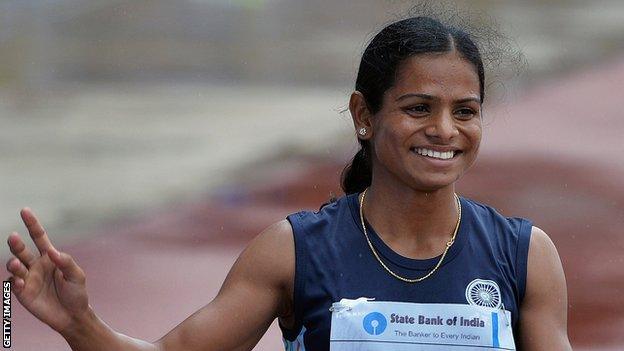
Indian sprinter Dutee Chand was the first athlete to challenge the IAAF's hyperandrogenism regulations
Gender tests for female athletes with high levels of testosterone could be reinstated after a new study found it gave them a "competitive advantage".
Athletics' governing body the IAAF commissioned the research because it wants to prove it was right to test women with hyperandrogenism.
It wants to reinstate rules limiting how much testosterone female athletes can have in their bodies.
The Court of Arbitration for Sport (Cas) suspended the rules in July 2015.
The Cas suspension was for two years, giving the IAAF until July 2017 to prove its case.
The new research by doctors Stephane Bermon and Pierre-Yves Garnier has been published in the British Journal of Sports Medicine.
It is based on analysis of samples taken from 2,127 elite male and female athletes from the 2011 and 2013 World Championships.
It concludes high testosterone levels give a "significant competitive advantage" in the 400m, 400m hurdles, 800m, hammer throw, and pole vault events in particular.
What happens next?
Cas had made the ruling after clearing Indian sprinter Dutee Chand to race, in a decision which questioned the validity of so-called gender tests around naturally high testosterone levels in female athletes.
Chand took the case to Cas after being banned following a failed a hormone test, with her legal team arguing the ruling was discriminatory and flawed.
In challenging the decision, the IAAF will use the evidence from Bermon and Garnier's study.
"Our starting position is to defend, protect and promote fair female competition," said Bermon.
"If, as the study shows, in certain events female athletes with higher testosterone levels can have a competitive advantage of between 1.8%-4.5% over female athletes with lower testosterone levels, imagine the magnitude of the advantage for female athletes with testosterone levels in the normal male range.
"This study is one part of the evidence the IAAF will be submitting to Cas regarding the degree of performance advantage that hyperandrogenic female athletes enjoy over female athletes with normal testosterone levels.
"We continue to gather more data and research on our journey to providing a fair and level playing field for females in our sport."
In a statement, the IAAF added that the rules would remain suspended until the issue is resolved with Cas, meaning "that this process will have no impact on the IAAF World Championships in London this August".
Why is this an issue?
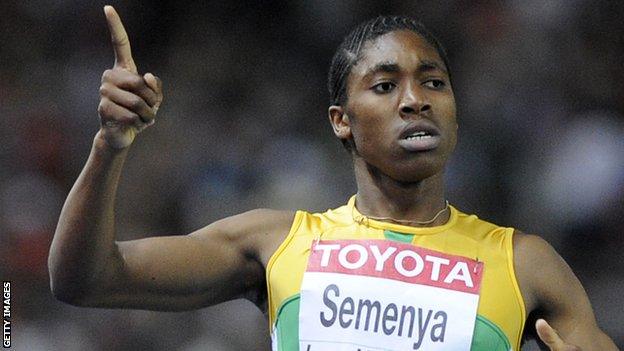
Caster Semenya winning the 800m at the 2009 World Championships
Chand was the first athlete to challenge the regulations, introduced in the wake of the Caster Semenya affair in 2009.
South African teenager Semenya was asked to take a gender test shortly before winning the 800m at the 2009 World Championships in Berlin.
Subjected to enormous media scrutiny, Semenya subsequently returned to the sport, winning Olympic gold medals in the 800m at London 2012 and Rio 2016.
She finished second in London but this was upgraded when Russian Mariya Savinova was stripped of her gold after being found guilty of doping.
Critics have described the IAAF's stance as "biological racism", calling it discriminatory, arbitrary and pointing to possible psychological effects on those who have to take the tests.
In 2015, Chand told the BBC: "I know people started suspecting whether I was a woman or a man. All the honour I earned - I lost.
"My friends used to start asking what's wrong with me, and started to avoid me. In training centres, where girls used to share rooms, I was kept separately."
- Published27 July 2015
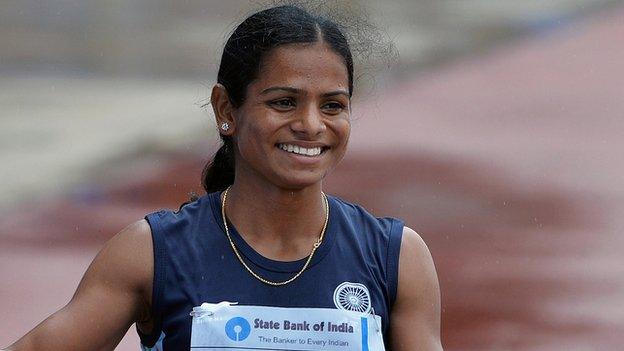
- Published28 July 2015
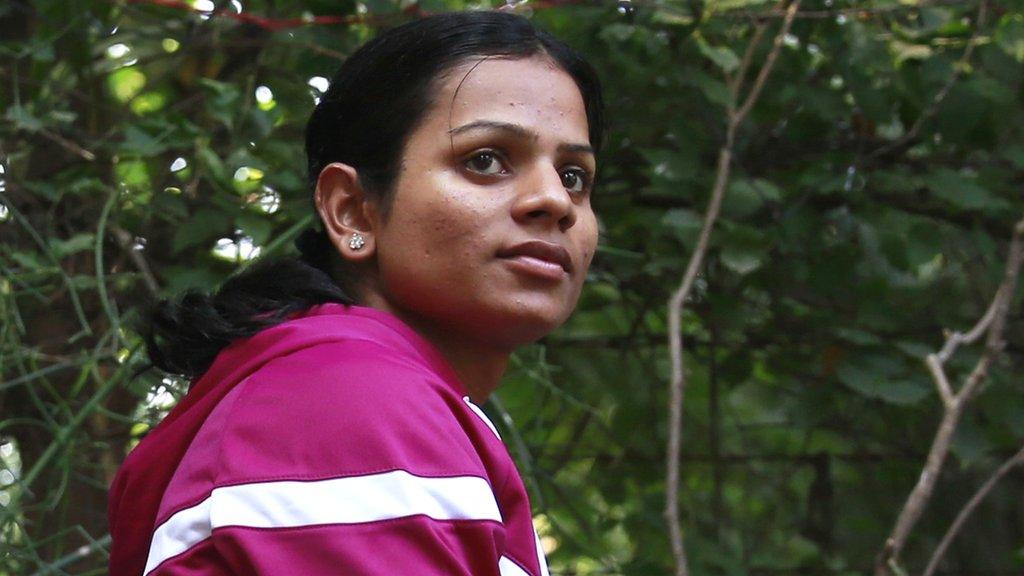
- Published28 July 2015
- Published3 March 2018
